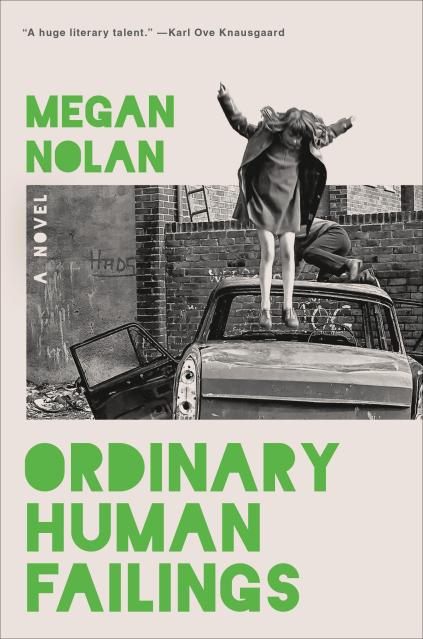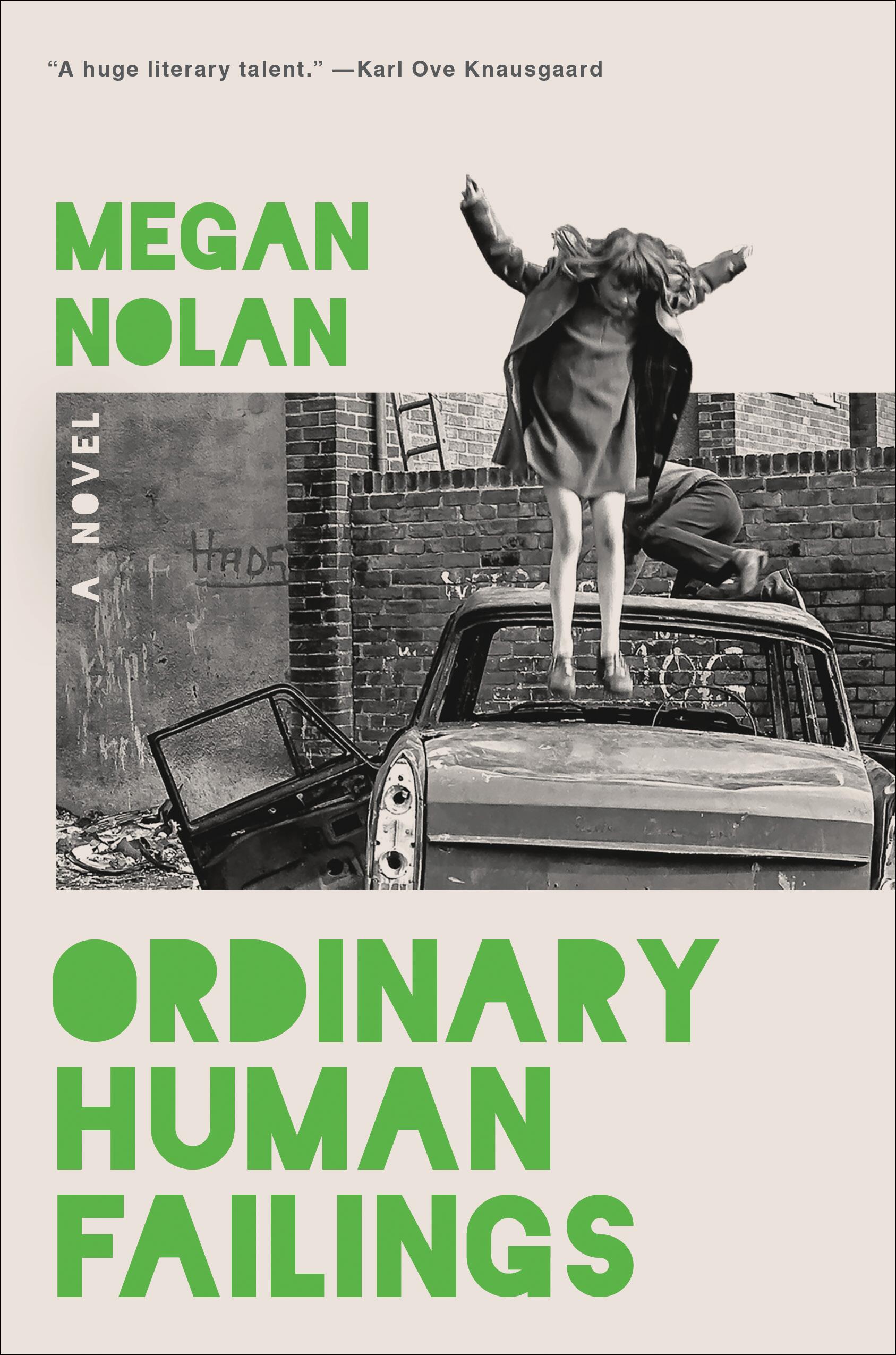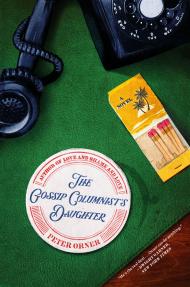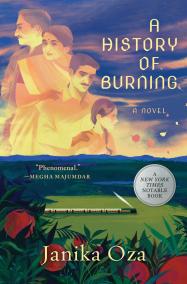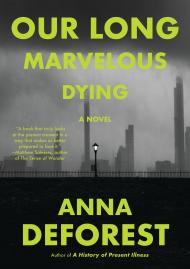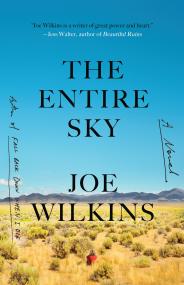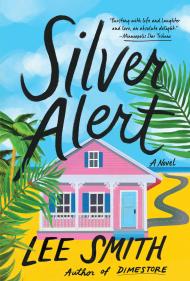By clicking “Accept,” you agree to the use of cookies and similar technologies on your device as set forth in our Cookie Policy and our Privacy Policy. Please note that certain cookies are essential for this website to function properly and do not require user consent to be deployed.
Ordinary Human Failings
A Novel
Contributors
By Megan Nolan
Formats and Prices
- On Sale
- Feb 6, 2024
- Page Count
- 224 pages
- Publisher
- Little, Brown and Company
- ISBN-13
- 9780316567800
Price
$13.99Price
$17.99 CADFormat
Format:
- ebook $13.99 $17.99 CAD
- Hardcover $27.00 $35.00 CAD
- Audiobook Download (Unabridged) $18.99
- Trade Paperback $16.99 $22.99 CAD
This item is a preorder. Your payment method will be charged immediately, and the product is expected to ship on or around February 6, 2024. This date is subject to change due to shipping delays beyond our control.
Buy from Other Retailers:
FINALIST FOR THE FALLON BOOK CLUB SELECTION
It's 1990 in London and Tom Hargreaves has it all: a burgeoning career as a reporter, fierce ambition and a brisk disregard for the "peasants" — ordinary people, his readers, easy tabloid fodder. His star seems set to rise when he stumbles across a sensational scoop: a dead child on a London estate, grieving parents beloved across the neighborhood, and the finger of suspicion pointing at one reclusive family of Irish immigrants and “bad apples”: the Greens.
At their heart sits Carmel: beautiful, otherworldly, broken, and once destined for a future beyond her circumstances until life – and love – got in her way. Crushed by failure and surrounded by disappointment, there's nowhere for her to go and no chance of escape. Now, with the police closing in on a suspect and the tabloids hunting their monster, she must confront the secrets and silences that have trapped her family for so many generations.
Genre:
-
*Chosen as one of the best books of the year by Vogue, The Guardian, The Times, and Sunday Times*VOGUE
“Gripping…With her careful and caring novel, Nolan shows how misfortune can start with a few bad decisions and how culpability is entangled in providence and privilege. Her prose is slicing and exacting; this is a book that smarts but also comforts with its precise generosity.” – VOGUE (Best Books of 2024)
-
“A kind of existential murder mystery, a meditation on true crime…Famine or hunger strikes needn’t be mentioned explicitly. Not with Nolan’s delicate yet powerful characterizations, which illustrate immigrant homesickness not by missed friends or good times but neglected gravestones in cemeteries. At times, Nolan’s portrait of this extraordinary family feels like a novel told through short stories….Perhaps most impressive of all, she confronts dark matters without tumbling into bleak despondency…..”Tom Deignan, BROOKLYN RAIL
-
"Nolan’s prose is clean and exacting, with an almost clinical interest in the power of shame: class shame, sexual shame, national shame, the shame of the addict. It seems to rank high among Nolan’s writerly principles that the cure for shame is honesty, however ugly the truth is."WASHINGTON POST
-
“A visceral, knowing exploration of human misery and the ways we fail ourselves."CRIME READS
-
“Megan Nolan’s taut story oscillates between a reporter investigating an infant’s suspicious death and the mother of a prime suspect.” – Keziah Weir, VANITY FAIRKeziah Weir, VANITY FAIR
-
“A subtle, accomplished and lyrical study of familial and intergenerational despair, a quiet book about quiet lives... an excellent novel: politically astute, furious and compassionate... a genuine achievement.”Keiran Goddard, THE GUARDIAN
-
“Heartbreaking, funny, and wise, Ordinary Human Failings explodes the privacy of shame and grief in thrillingly perceptive, ecstatically lively prose. The Greens are a family you won’t ever forget.”KYLE DILLON HERTZ, author of THE LOOKBACK WINDOW
-
“Suffused with empathy, Nolan’s novel expertly illuminates the parts of ourselves we try to keep in the dark.”KIRKUS (starred review)
-
“Through her skillful exploration of the burdens imposed by inertia and inadequacy, Nolan illuminates the link to tragedies both commonplace and exceptional.”BOOKLIST (starred review)
-
“As much of a compulsive read as the first novel.”Claire Lowdon, THE TIMES
-
“One masterful novel... Nolan has excelled herself: Ordinary Human Failings is a raw, pulsing thing... A writer who's still at the start of what promises to be a splendid career. Ordinary Human Failings is a bold and beautiful second novel... daring in all the right ways, but compassionate when it needs to be.”Lucy Scholes, DAILY TELEGRAPH
-
"It's a novel that resists the obvious... one unspoken trauma cascading into another... [the novel is] a fierce and relentless account of a family in crisis..."Harriet Lane, THE NEW YORK TIMES
-
There are two ways of denying reality: silence and sensationalism… Her novel is a commentary on form—a tabloid story told as a novel stretches and deepens, grows sadder and stranger and less sensational. It is, in this way, a novel in defense of the novel. The difference between tragedies scandalous and standard is more in circumstance and structure than in kind…. It is at its best in backstory, Nolan’s prose gentle and furious, her insights psychologically astute and empathetic. … Nolan is especially heartbreaking in her description of failed hopes. ….The novel is deeply concerned with the relationship between inner privacy and outward appearance, with what it means to be good or bad, and what, in the equation, is the balance between one’s private estimation and the judgment of others.Meghan Racklin, BROOKLYN RAIL
-
"This novel is a philosophical investigation of family... Carmel Green is at odds with herself... the extraordinary richness of interiority creates a character you will insist is real. You may not get the life you want. You may just get life. Nolan wants to tell you that this is a gift, even if others have tried ruining it, even if you might want to ruin it yourself.”Kyle Dillon Hertz, ELECTRIC LIT
-
“There is something wonderfully ordinary about this book... Nolan has set out to make a plain three-legged stool rather than an ornate grandfather clock. The corridors of contemporary literature are stuffed with grandfather clocks with faulty mechanisms. How much more valuable is this modest, well-made thing.”SUNDAY TIMES
-
“Nolan chips away at the family’s tough, working class shell, exposing their delicacy and tenderness, making Ordinary Human Failings feel sweeping and cinematic, cutting between countries, decades, and characters.”Sammy Loren, NYLON
-
“[An] essential voice…the mark of Nolan’s writing is her ability to dimensionalize the inner lives of her characters… The ultimate draw of the novel is a recurring fascination in Nolan’s work: the notion of personal context and how it shapes a human life.”THE CHICAGO REVIEW OF BOOKS
-
Inaugural subscribers-only monthly book club selection for FebruaryNora Biette-Timmons, JEZEBEL
-
“Megan Nolan's debut novel... saw her grouped with other Irish millennial women such as Sally Rooney and Naoise Dolan. But with her ambitious and insightful second novel, Ordinary Human Failings, Nolan makes it clear she is not a manifestation of a type, but rather a writer to be read on her own terms”Melissa Harrison, FINANCIAL TIMES
-
“A feat of narrative compression that showcases Nolan's talent.”DAILY MAIL
-
“Page-turning and written with aching, compassionate insight. Each account leaves your heartstrings taut as cheese wire.”Holly Williams, THE OBSERVER
-
“A heartbreaking study in how humiliation and grief are passed from parent to child."DAILY TELEGRAPH, Summer Read of 2023
-
Featured on Best Books of February 2024:Vannessa Cronin, AMAZON BOOK REVIEW
"Nolan's novel is piercingly insightful on the psychology of everyday disappointment. She doesn't paint a broad canvas of neglect... she simply builds a trail of tiny, devastatingly evocative brush strokes in this keenly observed and riveting novel." -
“On the surface, Ordinary Human Failings reflects a major pivot in genre—it could be categorized as a thriller or even a crime novel—but it’s much more concerned with tracking emotional and social histories than traditional clues.”Esme Hogeveen, INTERVIEW MAGAZINE
-
“Heartbreaking, society-examining stuff."VOGUE
-
Featured on Best of February 2024 ListRUSSH
-
“Megan Nolan is one of the brightest young things around.”THE TIMES, Summer Reads of 2023
-
“Nolan's prose is cool, elegant and, at times, stunningly beautiful.”Dominique Sisley, DAZED
-
“The final pages...moved me to tears. This is a fine novel by an author who, at just thirty-three, already has exceptional skill and nerve.”Emma Garman, LITERARY REVIEW
-
“Insightful…Nolan is a gifted writer, capable of stunningly precise observations. This unflinching tale provokes.”PUBLISHERS WEEKLY
-
“A fearless writer... marks a confident evolution in her writing.”Bookseller
-
“Nolan, the princess of Dublin’s underdog arts and letters renaissance, investigates salacious street crimes and the agency of children. An unformulaic procedural wherein gossip transmutes itself into dull familial terror.”ZYZZYVA MAGAZINE
-
“A novel that resists the obvious. ... Though the novel concludes — perhaps not entirely persuasively — on a note of hope, this fierce and relentless account of a family in crisis is almost unbearably bleak.”NYT BOOK REVIEW EDITOR'S CHOICE SELECTION
-
“Megan Nolan’s sophomore novel refines and expands upon themes found in her best-selling debut, Acts of Desperation….Readers familiar with Nolan’s first novel will discover a more confident writing voice in the second, which contains a complex plot aimed at confronting familiar ideas of misuse and obsession with a wider scope on media and politics. Ordinary Human Failings—recently longlisted for the Women’s Prize for Fiction alongside books by other established Irish authors like Claire Kilroy and Anne Enright—is one of my personal favorite books in recent years.”CHICAGO REVIEW OF BOOKS
Newsletter Signup
By clicking ‘Sign Up,’ I acknowledge that I have read and agree to Hachette Book Group’s Privacy Policy and Terms of Use
